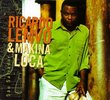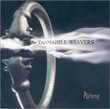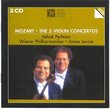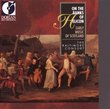| All Artists: Handel, Richter, Gavrilov Title: Handel: Keyboard Suites Members Wishing: 0 Total Copies: 0 Label: EMI Classics Release Date: 11/26/1996 Genre: Classical Styles: Forms & Genres, Suites, Historical Periods, Baroque (c.1600-1750), Modern, 20th, & 21st Century Number of Discs: 2 SwapaCD Credits: 2 UPC: 724356933729 |
Search - Handel, Richter, Gavrilov :: Handel: Keyboard Suites
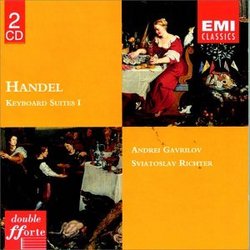 | Handel, Richter, Gavrilov Handel: Keyboard Suites Genre: Classical
|
Larger Image |
CD DetailsSimilarly Requested CDs
|
CD ReviewsEver fresh and delightful music from the Great Mr Handel. John Austin | Kangaroo Ground, Australia | 06/06/2001 (5 out of 5 stars) "If Handel's vocal music is back in favour at present, then his many keyboard suites also have claims for the attention of modern audiences. Personally, I don't welcome a chance to listen to the ways Handel contrived to set two lines of a foreign language to six minutes of music. I delight in listening, however, to how he develops and extends the classic suite items - allemande, courante, sarabande and gigue, adding sometimes other items, and sometimes - and in the Second Suite - omitting all the classic movements. It is not be understood, mind you, that Handel planned and plotted each suite as a whole entity. Almost all of them are gatherings of pieces dating from his early composing years. He published the first eight suites when he was aged 35.Pianists Sviatoslav Richter and Andrei Gavrilov shared live performances of all of them at a series of concerts given at the Tours Festival, France in 1979. Happily the recordings that derive from these performances are eminently successful, with little or no audible coughing and a life-like if sometimes fierce piano tone. Both pianists "voice" the linear part writing colourfully, in ways not possible when a harpsichord is used. Repeats are observed throughout. Making a belated and rosette-winning appearance on CD, these performances are conveniently spread across two double CD sets. Included in the second set, as a bonus, is a Richter performance good for all time if ever there was one - his 1961 Abbey Road Studio recording of Beethoven's "Tempest" Sonata." Pianistic Handel John Austin | 01/24/2000 (4 out of 5 stars) "Handel is not frequently played on piano, and authentic music enthusiasts might well point to this recording as an example of "heavy handed" pianism obscuring musical colors composed for harpsichord. However, there is much to enjoy in these strong readings of Handel. Richter was certainly capable of a lighter approach such as Perahia used in his recent recording, but he heard the music differently, and so will you if you allow repeated listening to persuade you of the validity of Richter's approach. His fingerwork is wonderful, and the music, composed by one of the great keyboard artists and composers of the 18th century, is good enough to benefit from this individualistic interpretation by one of the 20th century's half-dozen greatest pianists." Fabulous. Consistent, composed, calming, intellectual John Austin | 06/07/1999 (5 out of 5 stars) "I have never appreciated Handel before I heard Richter play. I started to listen to Handel because of him. This is not a recording to show off Richter's technical brilliance, but he and Gavrilov interpret Handel very well. As usual, I am at a loss of words to describe the good things on planet earth."
|

 Track Listings (19) - Disc #1
Track Listings (19) - Disc #1